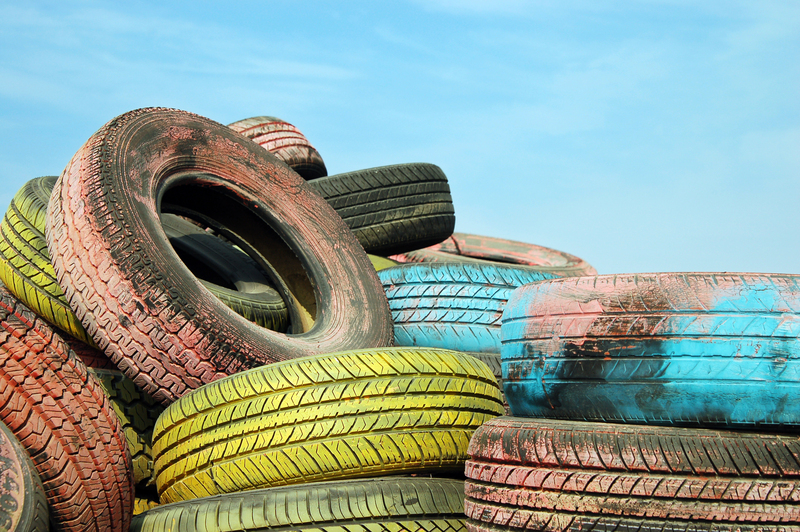Master the Art of Office Recycling for Environmental Success
Office recycling is more than just a buzzword in today's eco-conscious world. For businesses aiming to reduce their environmental footprint, minimize costs, and demonstrate ethical leadership, mastering the art of office recycling is crucial. This comprehensive guide explores proven strategies, tips, and best practices to help you and your team achieve environmental success through smarter waste management.
Why Office Recycling Matters
It's no secret that offices generate significant amounts of waste--paper, packaging, electronics, and more accumulate daily. According to the EPA, the average office worker produces about 2 pounds of paper waste per day. Adopting sustainable office recycling strategies isn't just about compliance; it's about creating a healthier workplace, saving resources, and showing your company's commitment to environmental responsibility.
Environmental Benefits
- Reduces landfill waste and greenhouse gas emissions
- Conserves natural resources like water, wood, and minerals
- Minimizes pollution associated with manufacturing of new products
- Promotes biodiversity through responsible resource use
Business Advantages
- Improves corporate reputation and branding
- May qualify your company for green certifications or tax incentives
- Employees feel proud working in a responsible organization
- Potential cost savings through reduced waste disposal fees

Understanding Office Recycling: What Can Be Recycled?
Before you can master office recycling, it's vital to know what materials are recyclable in your area. Different municipalities have different rules, so always check your local recycling guidelines. Here's a general list of common office waste items that can often be recycled:
- Paper items: printer paper, envelopes, sticky notes, cardboard boxes, magazines
- Plastic containers: beverage bottles, food trays, packaging (check resin codes!)
- Glass: beverage bottles and jars
- Metals: aluminum cans, tin foil, metal office supplies (like old staplers if separated)
- Electronics (e-waste): computers, printers, phones--handled via specific e-waste channels
- Ink and toner cartridges: many manufacturers offer take-back programs
What Cannot Be Recycled?
- Plastic bags (usually require a special drop-off)
- Food-contaminated items (like pizza boxes, used coffee cups)
- Styrofoam containers
- Certain electronics with hazardous materials (require special processing)
Step-by-Step Guide to Master Office Recycling
The secret to environmental success in an office setting lies in a systematic approach and whole-staff engagement. Here's a step-by-step blueprint to help your team excel.
1. Conduct a Waste Audit
The first step towards effective office recycling is understanding your current waste output. Consider:
- Quantifying how much waste your office produces in a week
- Identifying the largest sources (paper, plastics, food, etc.)
- Spotting areas for improvement or reuse opportunities
2. Appoint or Form a Green Team
Having a dedicated committee or 'Green Champions' boosts accountability. This group will drive all sustainability initiatives, monitor progress, and keep colleagues engaged.
3. Establish Clear Recycling Stations
A scattered approach to bins leads to confusion and contamination. Instead:
- Set up clearly labeled recycling, compost, and landfill containers at key points: kitchen, print area, entrances
- Use color codes and symbols for easy identification
- Ensure containers are emptied regularly to avoid overflow
4. Educate Staff and Foster Participation
An informed team makes better choices. Host training sessions or circulate informational emails and posters that detail:
- What can and cannot be recycled in your locality
- How to properly prepare items (e.g., rinsing containers, flattening boxes)
- Benefits of recycling for both the environment and the company
_Keep up engagement with friendly competitions, quizzes, or monthly reminders!_
5. Partner with Reliable Waste Haulers
Work with certified recycling companies to ensure proper sorting and processing. Ask for stats on your recycling rates and look for partners with strong environmental track records.
6. Encourage a Reduction Mindset
Office recycling is just one pillar of sustainability. Reducing overall consumption is even more impactful. Try these tips:
- Print double-sided and only when necessary
- Switch to reusable kitchenware (mugs, plates, cutlery)
- Opt for digital communications instead of paper handouts
- Buy in bulk to reduce packaging waste
- Encourage 'bring your own bottle' campaigns
7. Track and Celebrate Progress
Regularly measure your office's recycling rates and set new targets. Display progress on office notice boards or intranet, and celebrate milestones so everyone feels proud to be part of the solution.
Advanced Office Recycling: Go Beyond the Basics
Once you've established a solid recycling foundation, take your efforts further with these advanced techniques.
Set Up E-Waste Drives
Recycling electronics responsibly prevents hazardous chemicals from leaking into the environment. Periodically organize collection events for old computers, phones, or batteries. Research certified e-waste recyclers or partner with organizations that refurbish old equipment for charity.
Recycle Uncommon Office Items
- Used pens, mechanical pencils, and office supplies (certain programs accept these for recycling)
- Furniture recycling--donate, refurbish, or recycle old desks and chairs
- Coffee grounds (ideal for composting if your office or hauler supports it)
Switch to Sustainable Supplies
Source eco-friendly office products, like recycled paper, refillable pens, and non-toxic cleaning agents. By switching, you encourage suppliers to be greener and close the recycling loop by supporting recycled-material markets.
Involve Tenants and Building Management
If you work in a shared building, collaborate with other tenants and the facility manager. Unified recycling programs are more effective, lower costs, and amplify your impact.
Common Office Recycling Challenges (and How to Overcome Them)
Even well-intentioned companies face obstacles in the journey to environmental success. Here's how to address frequent issues:
Contamination
- Solution: Clear bin signage, regular employee education, and periodic checks help reduce mixing trash with recyclables.
Lack of Buy-In
- Solution: Involve employees in decision-making, appoint passionate leaders, and acknowledge everyone's contributions.
Logistical Hurdles
- Solution: Choose bins suitable for your office layout, streamline pick-up schedules, and encourage clean desk policies.
Uncertainty About What's Recyclable
- Solution: Partner with waste management pros, distribute updated guidelines, and use technology (apps/QR codes on bins) for real-time information.
Lack of Feedback
- Solution: Share progress reports, set goals, and publicly celebrate improvements--even small wins matter!
The Ripple Effect: Beyond the Office Walls
Mastering office recycling doesn't just benefit your immediate workplace. As employees adopt new habits, the momentum often spreads to their homes and communities. Suppliers notice demand for greener products. Clients appreciate ethical partnerships. Every step counts toward a more sustainable world.
Corporate Social Responsibility (CSR) and Public Perception
Many consumers and investors now seek out companies with demonstrated ethics and environmental responsibility. Promoting your recycling initiatives, partnering with local sustainability groups, and publishing annual sustainability reports all bolster your CSR profile--potentially increasing your company's appeal and profitability.
Inspiring Office Recycling Success Stories
- Google reduced its landfill waste by 86% in one year through comprehensive staff engagement and food waste composting.
- Patagonia revamped its headquarters, implementing advanced recycling, composting, and energy savings, leading to zero waste to landfill at several key locations.
- Local law firms have shared how simple changes--such as digital-first procedures and centralized bins--cut office waste by nearly half within six months.

Quick Tips: Simple Daily Changes for Better Office Recycling
- Always rinse food containers before recycling
- Encourage two-sided printing by making it the default setting
- Host a monthly "clean your desk" day and recycle old documents
- Create reminder emails or posters near common areas
- Offer incentives for departments with the highest recycling rates
- Nominate 'Recycling Champions' to motivate the team
Conclusion: Make Your Green Mark Through Office Recycling Mastery
Mastering office recycling is a journey requiring commitment, creativity, and community effort. By taking a proactive approach--educating your team, setting up the right infrastructure, and constantly seeking improvement--you'll foster an office environment that pushes toward environmental success and operational excellence.
Remember, every paper you recycle, every toner you return, and every colleague you inspire moves us closer to a healthier planet. Take pride in leading your business toward a sustainable future--and become a champion of office recycling in your industry.
Start today. Your actions matter.
Master office recycling, and celebrate your environmental success!